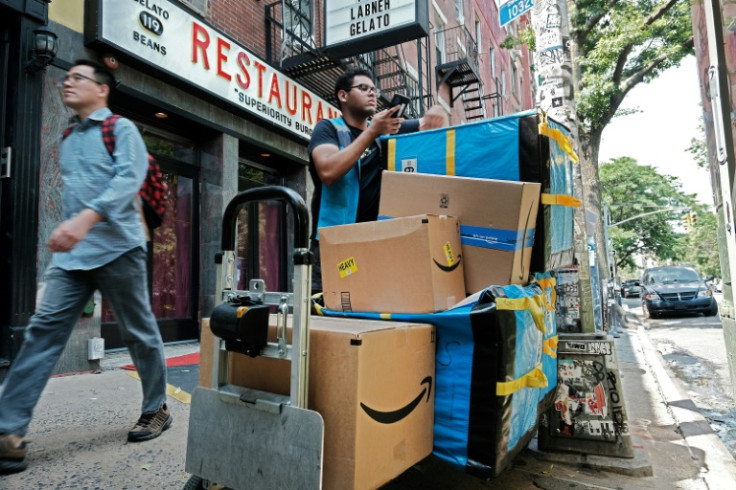The 2024 Forecast for Retail Industry: 'It is going to get worse'
Projections released by Think Tank suggest that consumers are likely to maintain a cautious approach to spending in the initial months of 2024.

Retailers are bracing for a challenging start to the new year as a combination of weakened consumer demand and a surge in costs, including an elevated minimum wage, looms on the horizon.
Projections released by Think Tank suggest that consumers are likely to maintain a cautious approach to spending in the initial months of 2024. This apprehension is attributed to mounting mortgage and rental costs, contributing to subdued consumer confidence.
Paul Martin, the UK head of retail at advisory firm KPMG, grimly stated, "It is going to get worse," highlighting the impending difficulties faced by retailers.
While there is a possibility of an uptick in demand during the spring, retailers are anticipated to encounter financial pressures, particularly those operating exclusively online within the fashion sector, or those lacking robust financial support.
This financial squeeze is expected to coincide with the implementation of the April minimum wage increase and a 6.7 per cent business rate hike for most retailers.
A pall of uncertainty hangs over the retail sector as consumers, grappling with economic uncertainties and inflationary pressures, tighten their purse strings.
A combination of factors, including higher fuel prices, increased cost of living, and lingering pandemic-related concerns, has led to a notable dip in consumer confidence.
This cautious approach to spending has left retailers facing the daunting task of stimulating demand in an increasingly frugal market.
According to the Office for National Statistics, retail sales witnessed a 2.7 per cent year-on-year decline in October, with supermarket sales showing minimal growth.
Nick Bubb, an independent retail analyst and panel member, commented on the lacklustre performance observed in the final quarter of 2023, emphasising volume pressure in non-food categories and a discernible trend of consumers tightening their budgets.
While much depends on the developments in the upcoming weeks, there has already been noticeable discounting, and this trend is expected to persist even after the Christmas period.
The weakened demand is not uniform across all retail sectors, with industries such as fashion, home furnishings, and luxury goods experiencing a more pronounced decline.
As retailers grapple with reduced foot traffic and online sales failing to compensate fully for the slump, they are compelled to rethink their marketing strategies and explore innovative approaches to entice cash-conscious consumers.
Adding to the sector's woes are the relentless increases in operational costs, ranging from supply chain disruptions to escalating energy prices.
The ripple effects of Brexit and ongoing global supply chain challenges have resulted in shortages, delays, and increased transportation expenses, all of which have a direct impact on the bottom line for retailers.
Furthermore, energy costs have witnessed a sharp spike, placing an additional strain on retailers already grappling with thin profit margins.
The increased cost of utilities, combined with rising wages and business rates, has left many retailers re-evaluating their pricing structures and considering potential adjustments that may be necessary to remain financially viable.
In response to these challenges, retailers are adopting a multi-faceted approach to navigate the turbulent economic landscape.
Embracing digital innovation and e-commerce has become imperative as businesses seek to diversify revenue streams and reach consumers in new ways.
Strategic partnerships and collaborations within the industry are on the rise, allowing retailers to pool resources and negotiate better terms with suppliers.
Some retailers are also turning to sustainability initiatives, not only as a response to consumer demand for eco-friendly products but also as a cost-saving measure.
Energy-efficient practices and responsible sourcing can contribute to long-term operational savings, providing a dual benefit of reduced costs and enhanced brand reputation.
Government intervention is increasingly being sought, with calls for targeted support and policies to alleviate the financial strain on retailers.
Business leaders are urging the government to reconsider business rates, provide relief on energy costs, and explore measures to enhance liquidity for struggling businesses.
As the retail sector grapples with the confluence of weak demand and escalating costs, the resilience and adaptability of businesses will be put to the test.
Industry leaders are bracing for a challenging period ahead, one that necessitates agility, innovation, and collaborative efforts to ensure the survival and eventual resurgence of the UK retail landscape.
© Copyright IBTimes 2025. All rights reserved.






















